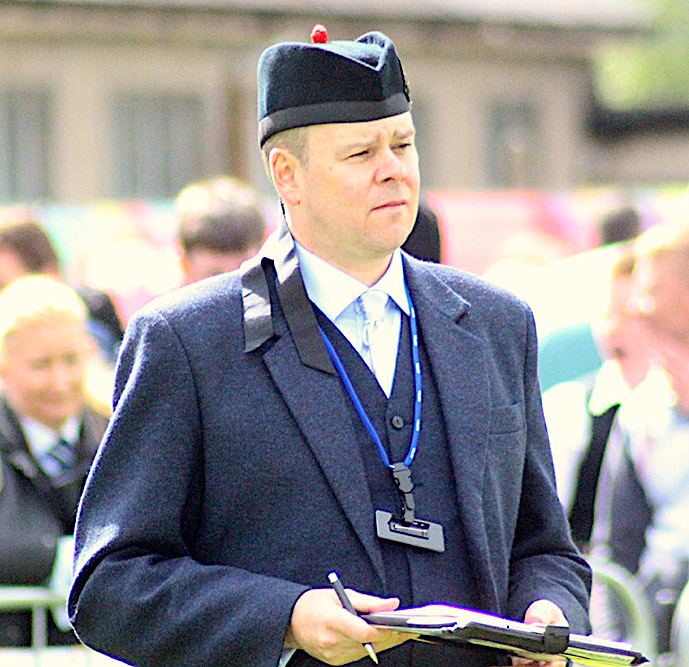
As I was mentioned in Friday’s article on the training of pipe band judges, I’d like to clarify my journey in joining the ranks of RSPBA piping adjudicators. There are some inaccuracies being stated as fact and misconceptions around the adjudicator training programme.
By Ross Walker
When I retired from playing, I was invited to attend a two-day weekend workshop at the beginning of 2017 followed by a series of practical experience modules (referred to in the past as ‘dummy runs’) across four separate events that same year. This was followed by another follow-up workshop and adjudicator entrance exam at the end of that year.
The process of joining the adjudicator panel today is practically no different than the one that my co-trainees and I were required to complete. Indeed, as today’s training programme focuses more heavily on the practical experience without the end-of-year exam, one could argue that the process is more attuned than ever to the actual demands of judging.
It should be kept in mind that the process of adjudicator qualification is not to test an individual’s knowledge or ability to identify a good performance from a poor one – that is accepted and is a prerequisite for being invited to join a training cohort.
The training is actually focused on helping candidate adjudicators master new, challenging skills around listening, assessing, writing, ranking, and generally administering your duties on the day.
While this sounds simple, with band performances coming thick and fast every eight minutes in some grades, the challenges in carrying out these duties are real and need to be experienced and mastered in a supportive environment before subjecting a new adjudicator to the pressurised contest scenario that we all recognise.
We also must treat the bands with respect and only assign adjudicators who are well prepared to execute their duties in a professional and diligent manner from day one.

Ultimately, as you progress through the training course, you learn to master the required set of skills through practice and experience before they’re used for real.
Every trainee I’ve spoken with after their first practice event has found the experience surprisingly challenging and have been grateful for the chance to refine these new skills in a safe environment.
I felt exactly the same way when I went through the training and would have made a complete mess of my first outing if it I hadn’t been given the benefit of the course.
So, in summary, the training is there to support new adjudicators in learning and mastering the elements required of an adjudicator in order that we do the best possible job for the bands.

















Ross Walker is a top player and a valuable member of the pipe band judges . Thank you Ross for sharing this with us . It just shows how complicated the judges have to go through in training and how intense it all is to getting the process right for the big day .. well done Ross for your input .. and honesty in all what goes on in the judging world. Thank you